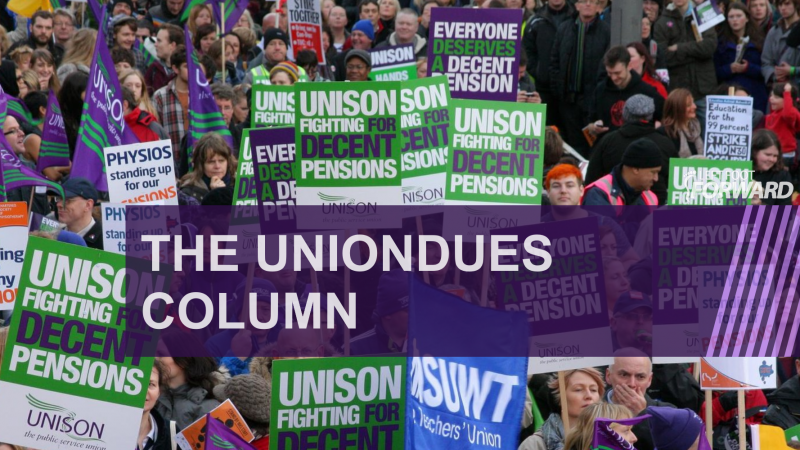Simon Sapper looks at bad HR and what's behind workplace strife in Britain.

Simon Sapper is a trade unionist and host of the UnionDues podcast.
Unresolved workplace conflict is reported to cost UK businesses £33bn a year. That’s not to mention the stress and misery that unresolved conflict causes workers and their unions. Is beefed up mediation a way forward?
In the latest UnionDues podcast, available from noon today, we take a deep dive into the world of mediation. And goodness knows we need to. Rising to this challenge is David Liddle, a vastly experienced mediator and CEO of dispute resolution firm the TCM group. And he’s clear that mediation isn’t just (or even) about reaching agreement. “Whether people agree or not is irrelevant,” he says. “The point is to disagree well.”
And a large part of that, David is clear, is down to business leaders. “Good leaders need to hear from people who are going to challenge them.” It’s also down how the top are rewarded: “If all we are rewarding is financial success, then that’s all our CEOs….will be driven to achieve.”
The HR community also does not escape scathing scrutiny, responsible, according to David, for “fanning the flames of fury and anger” with an often procedure-driven, litigation-centred approach when it comes to workplace disagreements. That is supported by grievance and discipline policies that “are the antithesis of everything that makes a good human being.”
He makes strong and revealing points, but it seems to me there are two clear challenges – the first is how to move from a short-term one-off reactive intervention to meet a particular dispute or some other need, to long-term prevention before workplace disputes blow up.
And secondly, the challenge of how to secure wider buy-in for this approach. Look at structural barriers to dialogue, such as out-sourcing and precarious work. Look too at the rash of “fire-and-rehire” efforts (and a shout out to the GMB, and a great campaign to stop this happening at British Gas, which we also review in the podcast).
There’s no doubt David is sincere, articulate and fundamentally correct that person-centred employment policies and a genuine, robust commitment to dialogue makes for better business sustainability. He makes a bold call for “a new social contract” that “will be the driver of successful businesses of the future.”
But we are walking something of tightrope here. It’s easy to see how an individual-centred policy can bring intolerable pressure for workers. Take real-time performance monitoring, for example. Firms like Accenture proudly boasted of abolishing annual appraisals, but is this alternative actually worse? And aren’t we entitled to see grievance procedures as a refuge and a response to management excess?
Structural barriers to workers even having a voice are being reinforced. Government policy, one-sided flexibility at work, uneven use of technology in favour of low wage, and precarious employment.
Without giving away too much, it was an animated conversation. David invited me, as soon as we are able, to walk down the high street and work out why some businesses have survived and some not. He’s confident that the survivors will be businesses who are focused on the individual worker. Regrettably, I’m not so sure. But you have to have a vision of where you want to end up.
Also in this week’s pod, Prof. Mel Simms looks at the importance of evidence-based policy making, and how easy it is to be distracted in her latest Thought for The Week. (What proportion of workers do you think are currently working from home?) And LFF’s own Josiah Mortimer previews this week’s Radical Round Up.
You can access all episodes of the UnionDues podcast here.
Left Foot Forward doesn't have the backing of big business or billionaires. We rely on the kind and generous support of ordinary people like you.
You can support hard-hitting journalism that holds the right to account, provides a forum for debate among progressives, and covers the stories the rest of the media ignore. Donate today.



